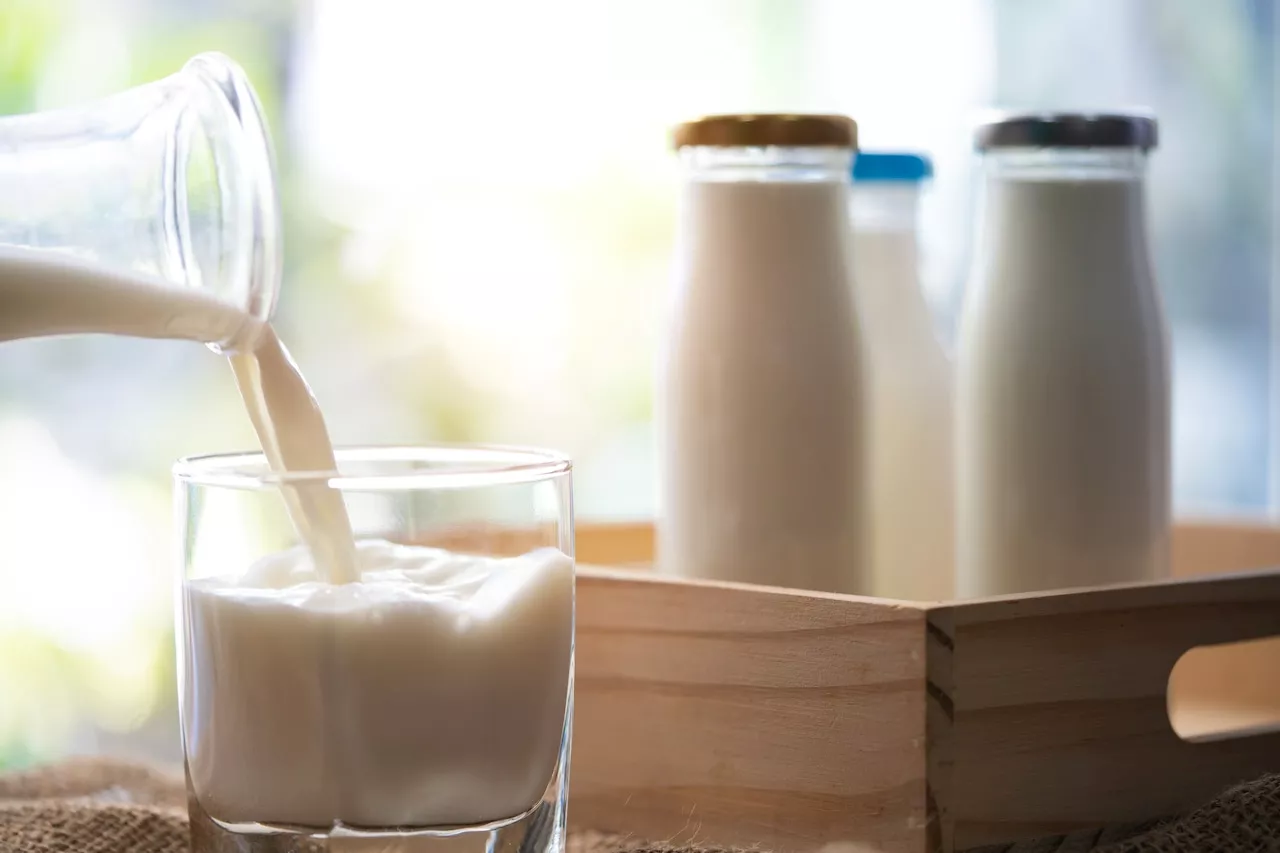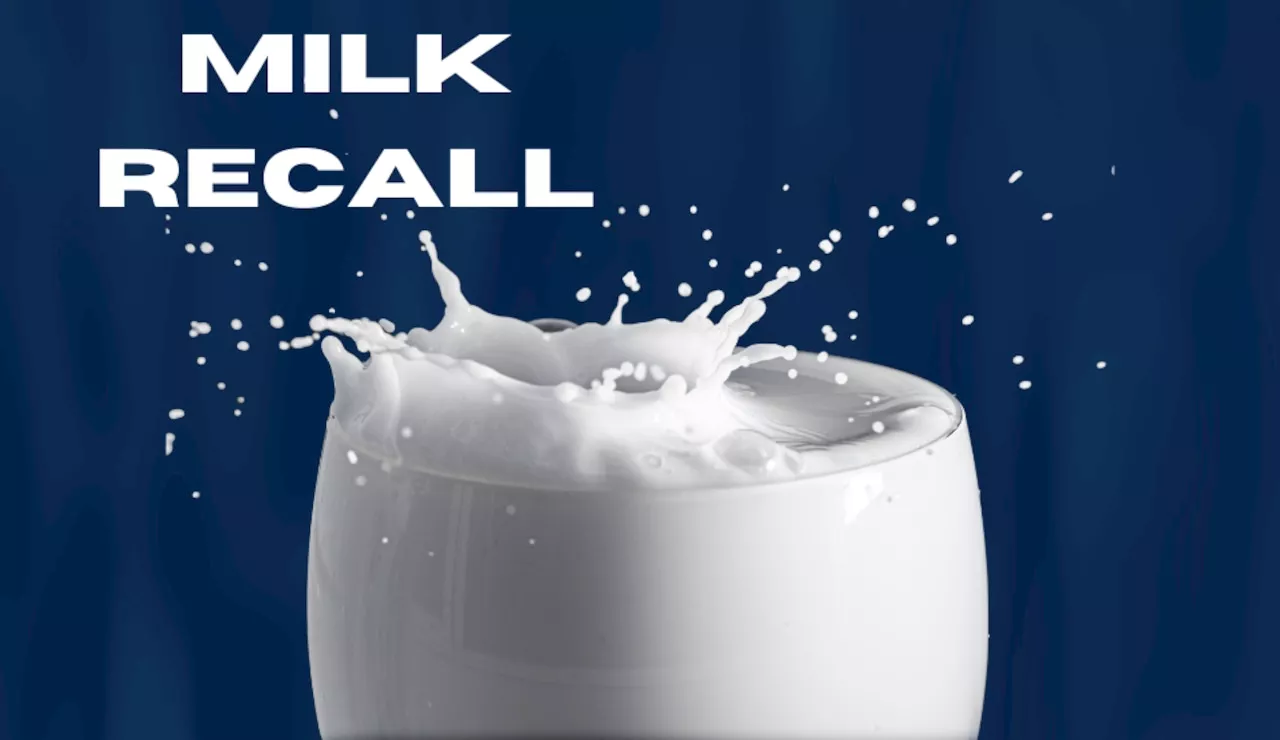A recent study suggests a potential link between consuming dairy-free milk and an increased risk of depression and anxiety. However, experts caution against drawing definitive conclusions, citing methodological limitations and the importance of a balanced diet.
A recent study published in the journal Frontiers in Nutrition suggests that consuming dairy-free milk may be linked to an increased risk of depression and anxiety. The UK Biobank study, which followed 350,000 participants for 13 years, found that individuals who drank plant-based milks had a 14% higher risk of depression compared to those who consumed dairy milk. However, Dr.
Roxanne Becker, a medical editor and educator at the Physicians Committee for Responsible Medicine, points out several limitations in the study's methodology. Becker argues that the increased risk observed in plant-based milk drinkers could be attributed to other factors, such as lower calorie intake and potential underlying eating disorders. She emphasizes that the study did not differentiate between underweight and normal weight participants, and individuals with eating disorders may use plant-based milks for calorie control, which is known to be linked to mental health issues. When the study controlled for total calorie intake, the association between plant-based milks and depression disappeared. Additionally, nearly all participants consuming plant-based milks had a body mass index below 25, while the study did not distinguish between underweight and normal weight individuals. Dr. Chris Scuderi, a family physician, agrees that diet can significantly impact mental well-being. He recommends a balanced diet rich in fruits, vegetables, and lean protein sources to support both physical and mental health. Scuderi also stresses the importance of consulting a physician to assess dietary habits and address any potential nutrient deficiencies. While cow's milk provides naturally occurring nutrients like vitamin B12 and calcium, plant-based milks often have these ingredients fortified. Experts advise carefully reading labels when choosing dairy-free alternatives. Ultimately, both Dr. Scuderi and Dr. Becker emphasize the importance of a balanced diet and personalized nutritional guidance for optimal mental and physical health
HEALTH DIET MENTAL HEALTH DEPRESSION ANXIETY PLANT-BASED MILK DAIRY MILK NUTRITION STUDY RESEARCH
United States Latest News, United States Headlines
Similar News:You can also read news stories similar to this one that we have collected from other news sources.
 Can You Freeze Milk? A Guide to Freezing and Thawing MilkThis article explores whether it's safe to freeze milk and provides tips on how to do it properly. It covers the best practices for freezing different types of milk, including cow's milk, goat's milk, and breast milk. The article also explains how to safely thaw frozen milk and warns against methods that can damage the milk's quality.
Can You Freeze Milk? A Guide to Freezing and Thawing MilkThis article explores whether it's safe to freeze milk and provides tips on how to do it properly. It covers the best practices for freezing different types of milk, including cow's milk, goat's milk, and breast milk. The article also explains how to safely thaw frozen milk and warns against methods that can damage the milk's quality.
Read more »
 Free pizza, free first responder meals, free hugs: Local businesses lend a handBlaze Pizza is giving away complimentary pies and NORMS has free meals for firefighters and first responders.
Free pizza, free first responder meals, free hugs: Local businesses lend a handBlaze Pizza is giving away complimentary pies and NORMS has free meals for firefighters and first responders.
Read more »
 Unhealthy Secrets of Popular Non-Dairy Milk AlternativesThis article exposes the hidden unhealthy ingredients in some popular non-dairy milk alternatives, such as added sugars, unhealthy oils, and questionable additives. It compares these options to cow's milk and highlights healthier alternatives.
Unhealthy Secrets of Popular Non-Dairy Milk AlternativesThis article exposes the hidden unhealthy ingredients in some popular non-dairy milk alternatives, such as added sugars, unhealthy oils, and questionable additives. It compares these options to cow's milk and highlights healthier alternatives.
Read more »
 Check your fridge: This brand of milk is being recalled because it may spoil earlyHorizon Organic Dairy is recalling thousands of cases of its self-stable milk.
Check your fridge: This brand of milk is being recalled because it may spoil earlyHorizon Organic Dairy is recalling thousands of cases of its self-stable milk.
Read more »
 Milk recall: Throw out this brand of whole milk sold in 3 different states ASAPThis popular milk brand is recalling thousands of cases of its organic milk because it may spoil early.
Milk recall: Throw out this brand of whole milk sold in 3 different states ASAPThis popular milk brand is recalling thousands of cases of its organic milk because it may spoil early.
Read more »
 Dairy Consumption Linked to Both Lower and Higher CholesterolA new study suggests that increasing dairy consumption could be associated with both positive and negative effects on heart health. While it may help manage blood pressure, it appears to also increase levels of LDL (bad) cholesterol. Experts recommend choosing low-fat options from grass-fed cows and incorporating dairy into a balanced diet.
Dairy Consumption Linked to Both Lower and Higher CholesterolA new study suggests that increasing dairy consumption could be associated with both positive and negative effects on heart health. While it may help manage blood pressure, it appears to also increase levels of LDL (bad) cholesterol. Experts recommend choosing low-fat options from grass-fed cows and incorporating dairy into a balanced diet.
Read more »
